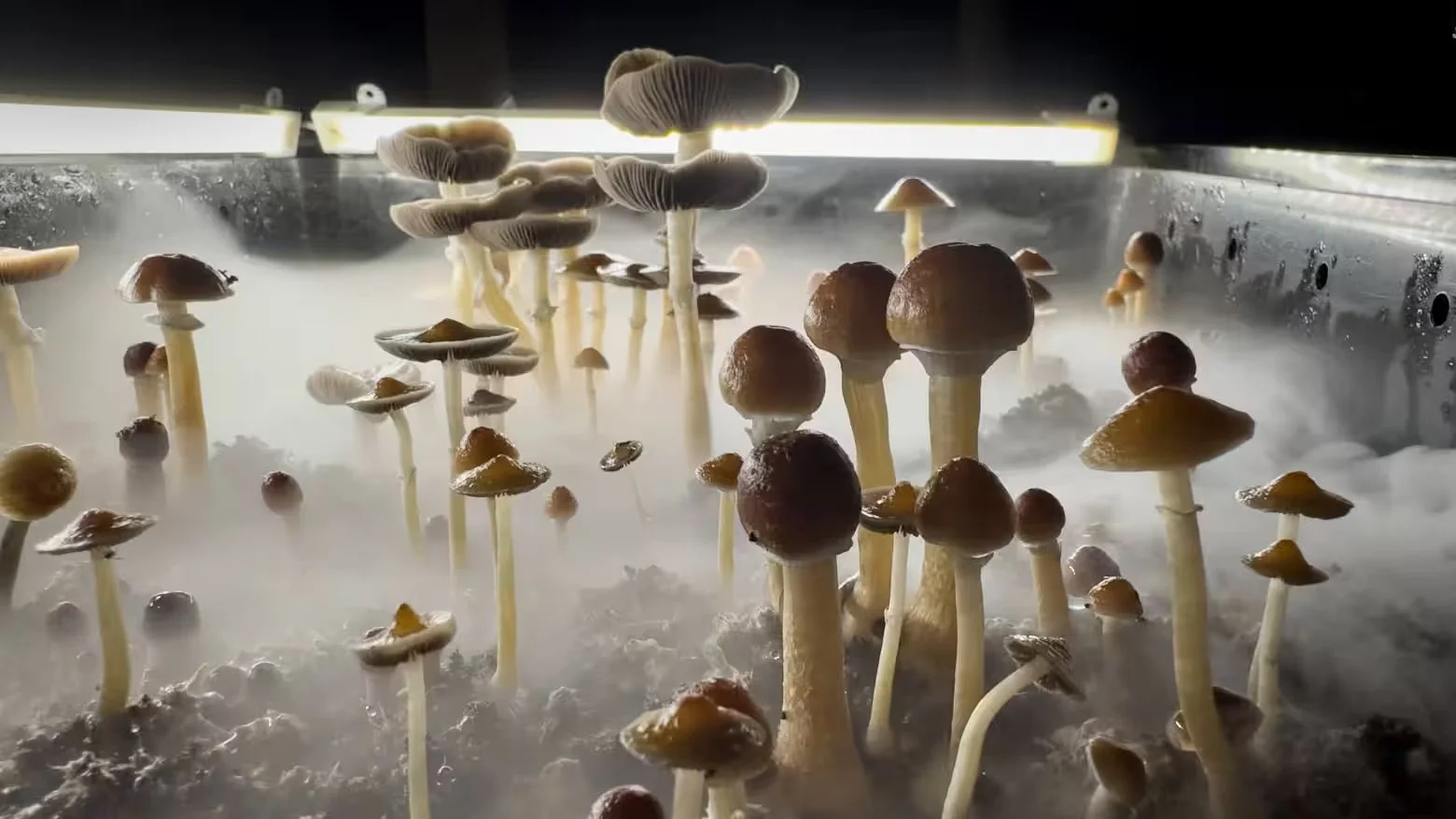Magical Medicine?
This story was published in Nikkei Asia here in August 2025.
"If you really feel you're going to die then just let yourself die" is not quite the advice that you expect to hear from your therapist, especially when explaining the potential side effects of an upcoming treatment for depression. But the Southeast Asian clinic I was at had a solid reputation, so I gave him the benefit of the doubt.
The use of plant-based medicines to foster psychological well-being has a long history in the Asia-Pacific region, with their calming and rebalancing effects likened to those of extended meditation. They have nevertheless been subject to government bans in many places due to concerns about their potential side effects. But recent research is prompting a rethink in some countries about which substances should rightly be classified as helpful and which as harmful.
In South Korea and Thailand for example, the use of cannabis is now permitted for treating issues such as chronic pain. In Australia, MDMA and psilocybin - the compounds that put the zing into ecstasy and magic mushrooms respectively - can today be prescribed for post-traumatic stress disorder and treatment-resistant depression. And, just a few weeks ago, psilocybin was approved for the same purpose in New Zealand.
But the approach remains mixed across the region with these same substances still strictly illegal in many places, such as Indonesia, Japan and Singapore. Other countries have instead drifted into a gray zone, tolerating their use without decriminalizing them, as is the case for India and Nepal when it comes to cannabis use during certain religious festivals for example.
The clinic I was at now was operating in just such a gray zone. While it offered psilocybin treatments, worked with local universities on researching the benefits of these, and lobbied the country's government for legalisation and regulation, it also all the while risked prosecution for dealing in what technically remained a banned substance. I was therefore not surprised to be asked to avoid divulging its location.
My visit was the culmination of a tough six months following the death of my mother, a period in which I had struggled with the reality of mortality, the meaning of existence, and just getting out of bed in the morning. But I had been loathe to try antidepressants given their reputation for dulling not only the negativity but all the other emotions too. My therapist promised me that would not happen with psilocybin.
Instead, he explained, it would in effect update my mind's operating system, temporarily taking my brain's "default mode network" offline and dissolving my sense of self and ego-rooted worries and fears along with it. This was where that potential feeling of being about to die might arise - in effect just the ego's way of protesting its temporary removal from centre stage. He explained how this would then allow parts of my brain that did not usually talk to each other to do so, kicking off a burst of new neuron formation and a wave of fresh thinking and creativity that would far outlast the five hour "high".
The psychological benefits of psilocybin have been recognised by indigenous groups in many parts of the world for centuries, and the compound was actually on the cusp of general acceptance and prescription usage in the 1960s following promising clinical trials. But its association with the U.S. counterculture of that decade led to an abrupt ban there in 1970. A year later, the United Nations adopted its Convention on Psychotropic Substances which recommended that member states ban it too, and many Asian countries swiftly did so. It is only in the last five years or so that research has restarted in earnest, reinforcing those earlier findings that this really is something of a wonder drug when it comes to treating issues such as depression and trauma.
About twenty minutes after swallowing the handful of dried mushrooms, I felt my senses start to sharpen and deepen. This was followed by what I can best describe as a widening of consciousness and the dissolution of my usual worries and insecurities, accompanied by a fresh feeling of connection with something far more expansive than myself, along with a wave of calm, ease and openness. While the intensity trailed off after a few hours, I subsequently found myself stabilised at a new, lighter equilibrium that endures many weeks later as I write this. That’s is in line with the latest research that shows a single dose of psilocybin continues to relieve depression and anxiety six months or more after administration.
The past decade has seen a remarkable change in attitudes toward mental health, with old stigmas fading and a growing acceptance that this is a mainstream issue in need of treatment. The value of Asian meditation and mindfulness practices has already been recognised in this regard, with their efficacy proven in controlled studies. Perhaps it is now time for more governments in the region to acknowledge that modern science has also validated ancient wisdom when it comes to plant-based medicines such as psilocybin, and to thus update their legal and regulatory systems accordingly. Moving from criminalisation to control has the potential to improve the lives of millions of their citizens at a single stroke.


